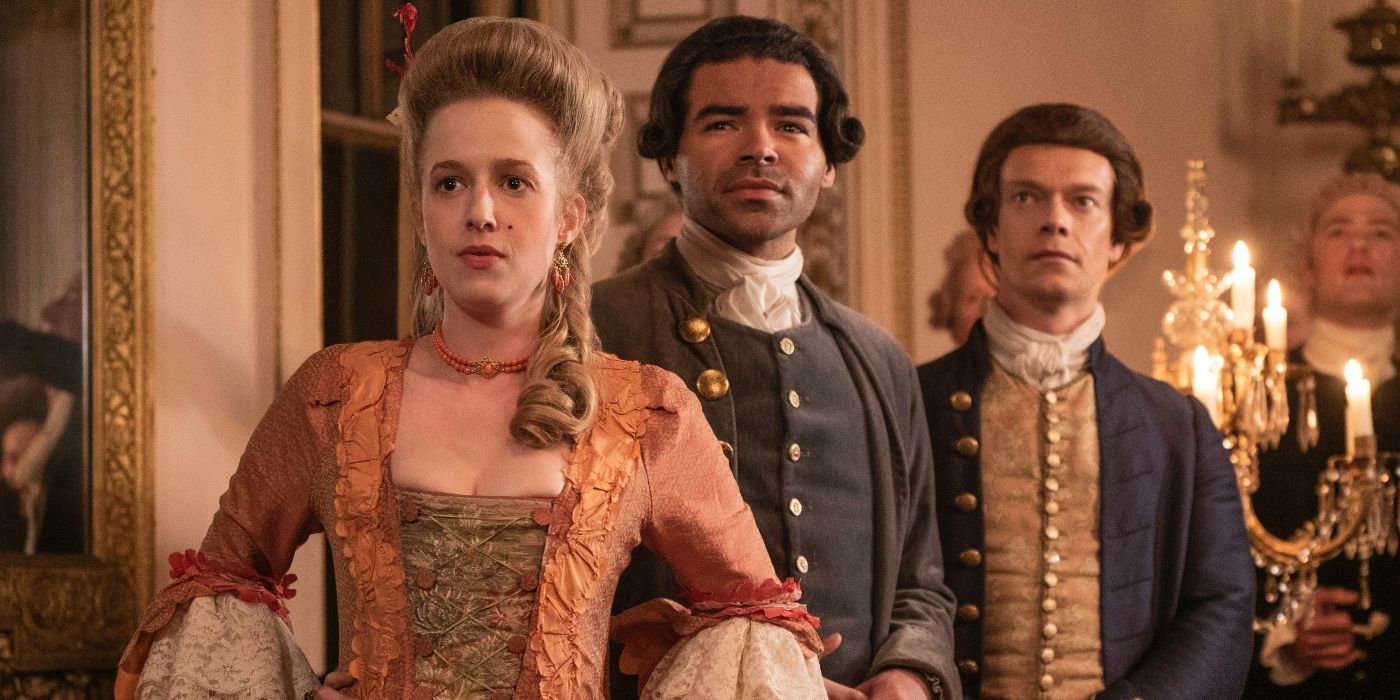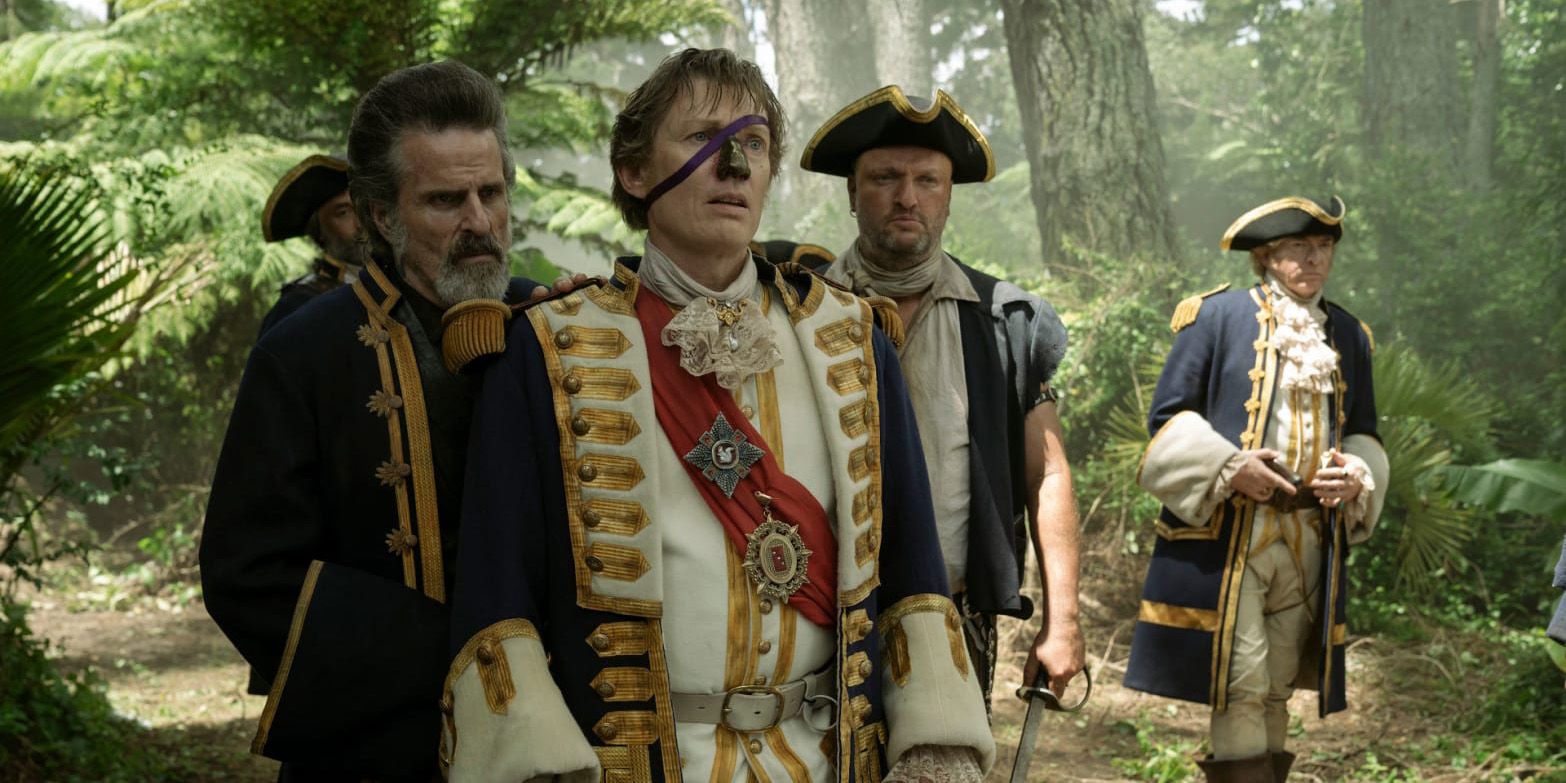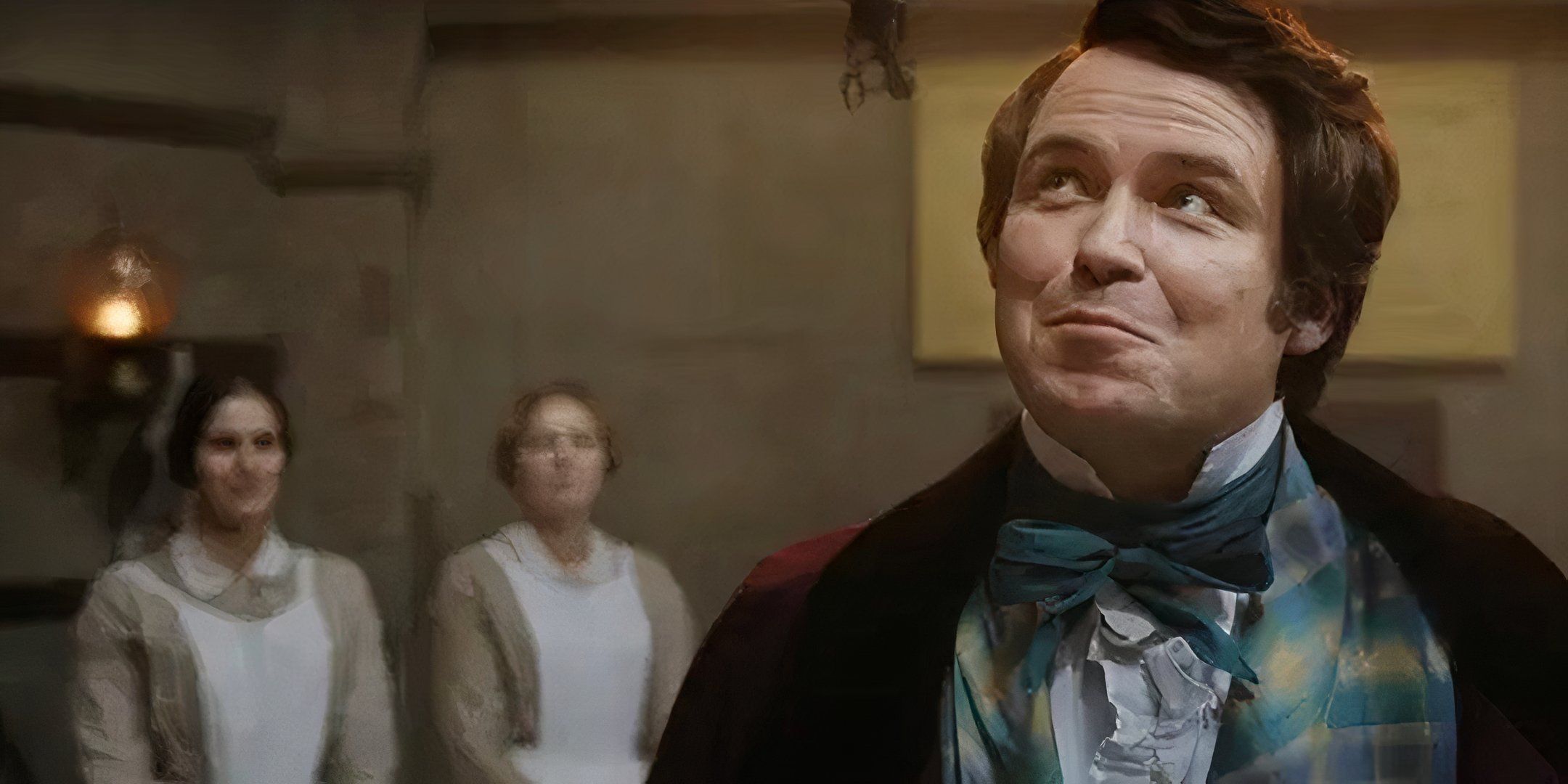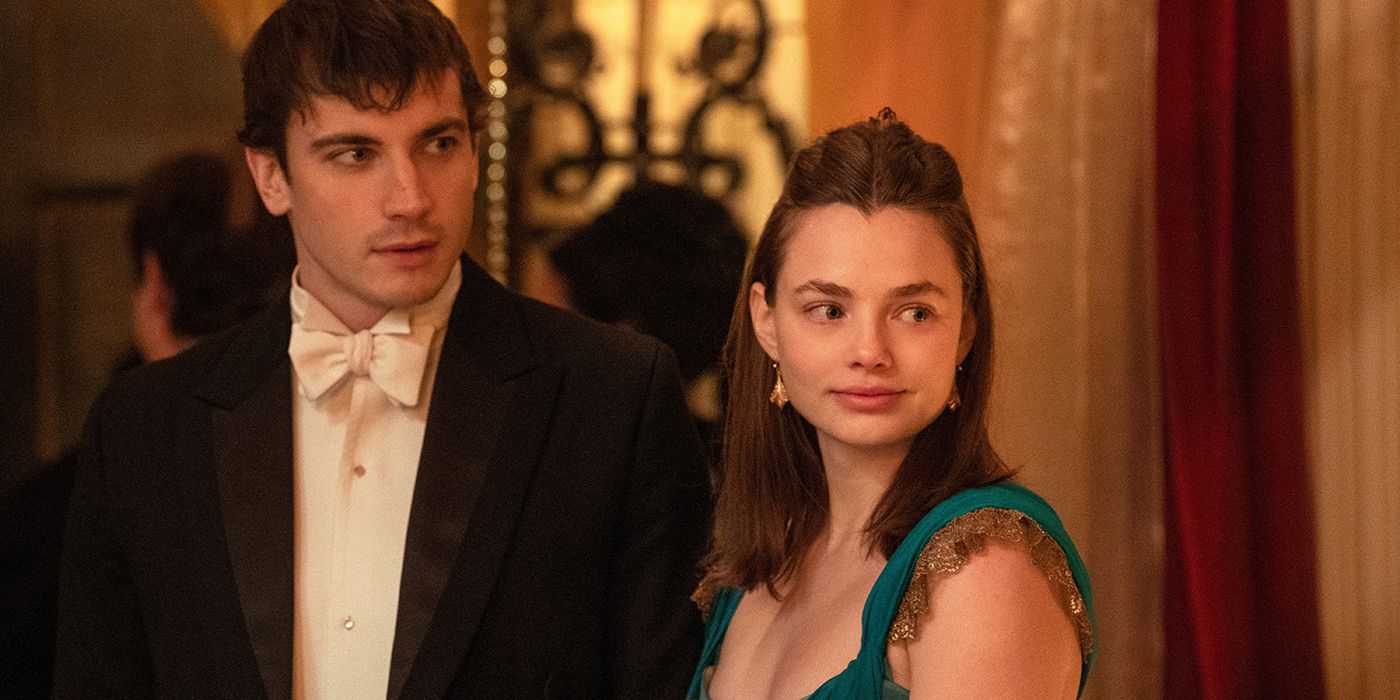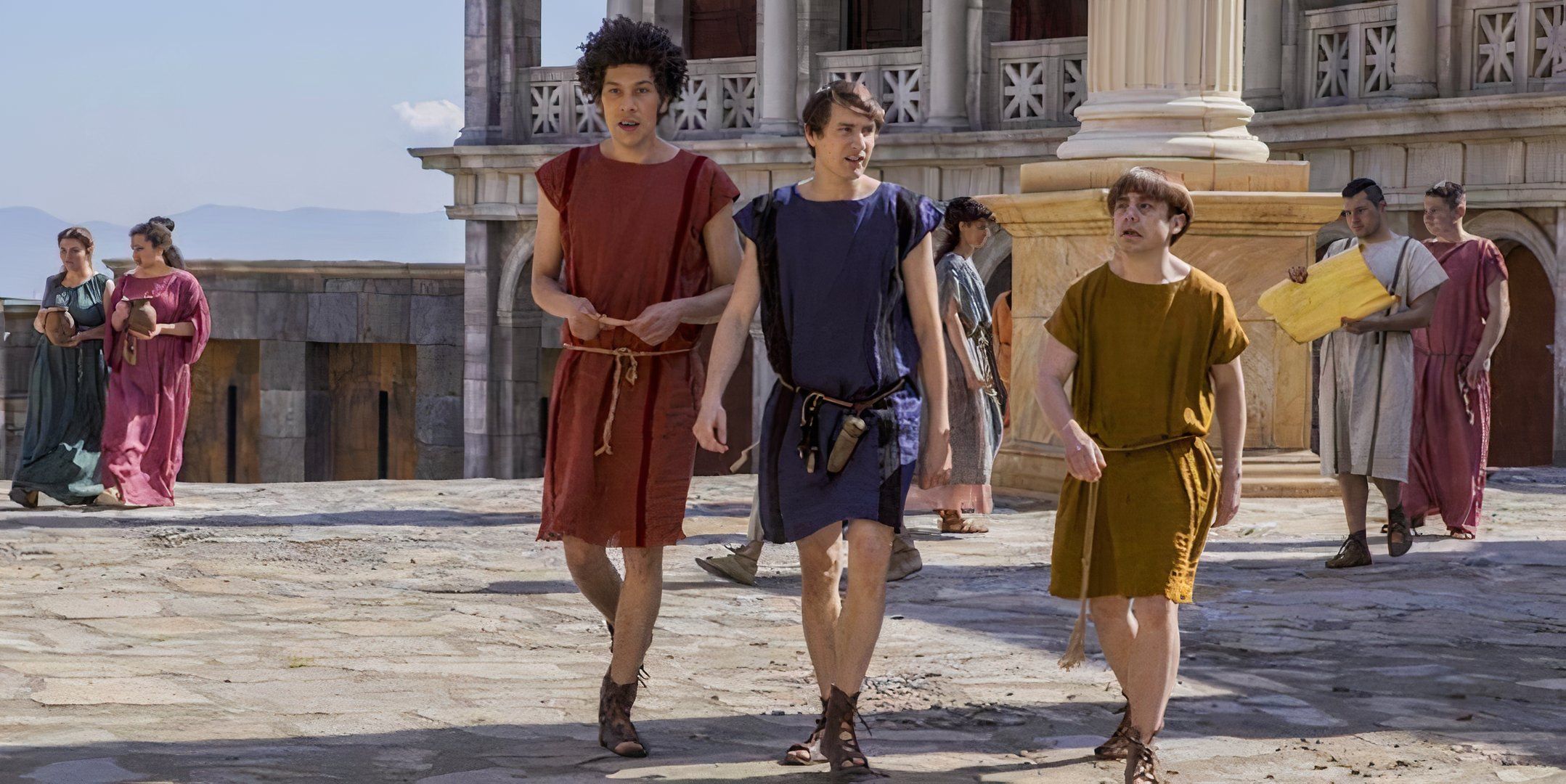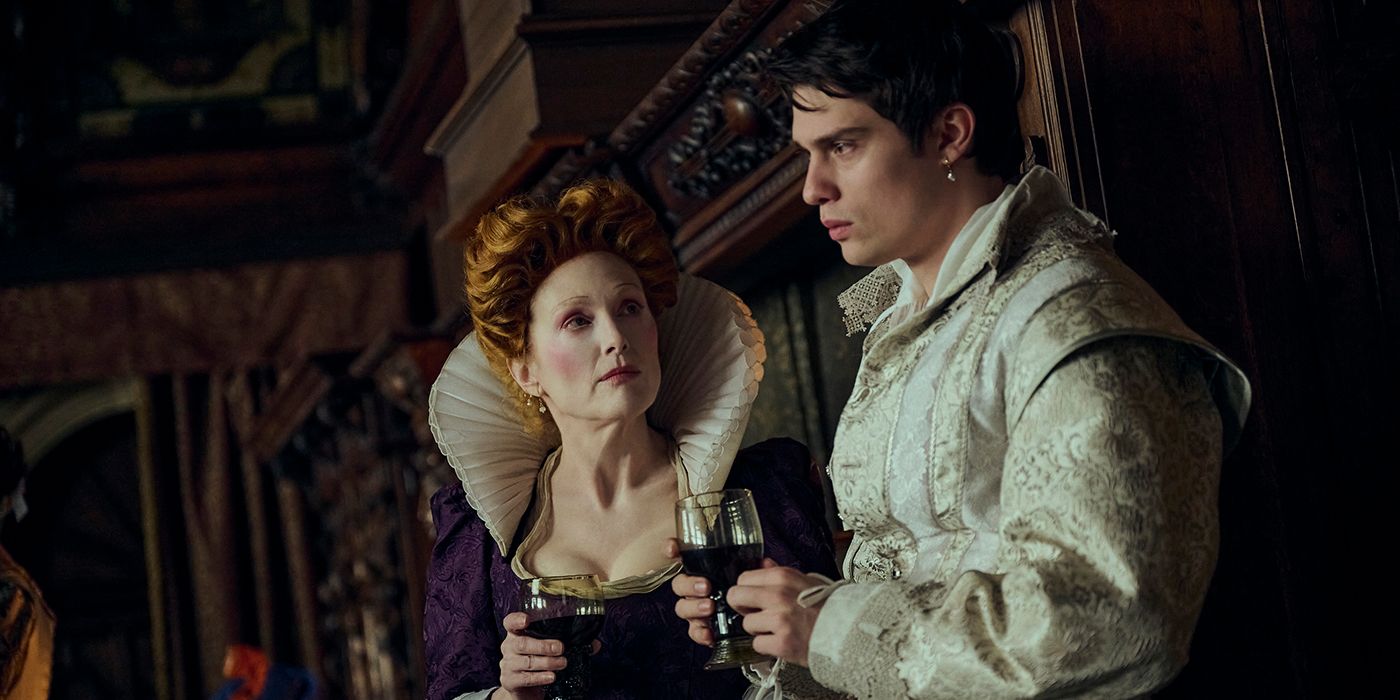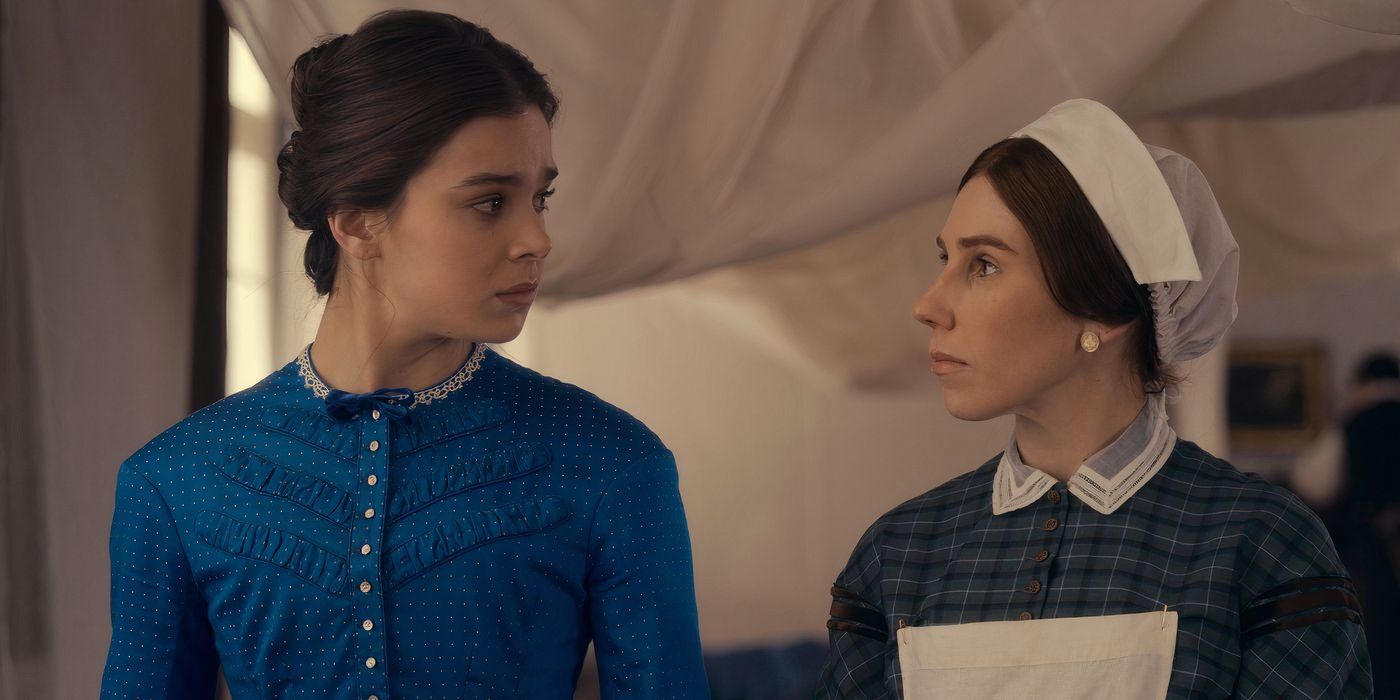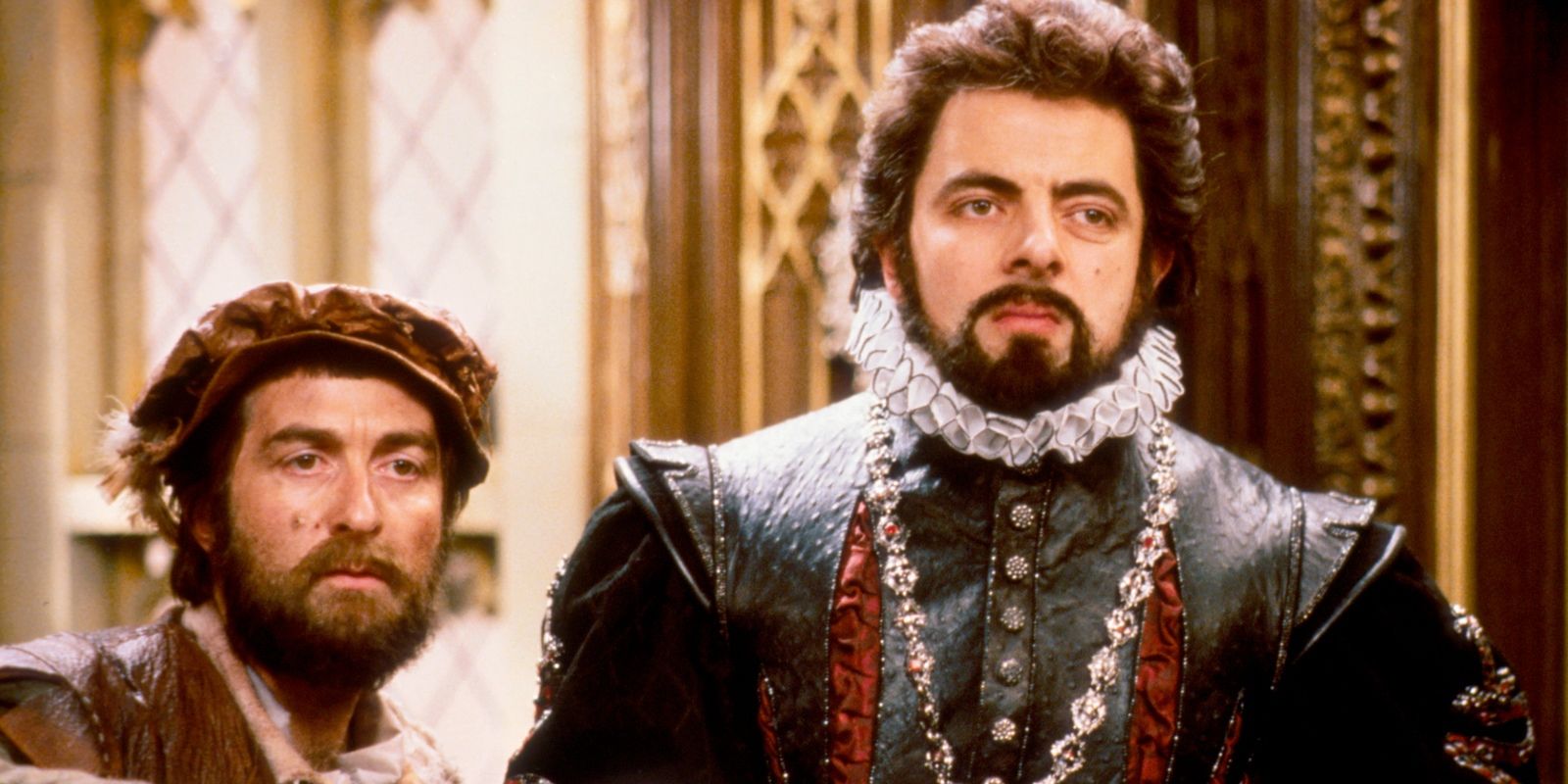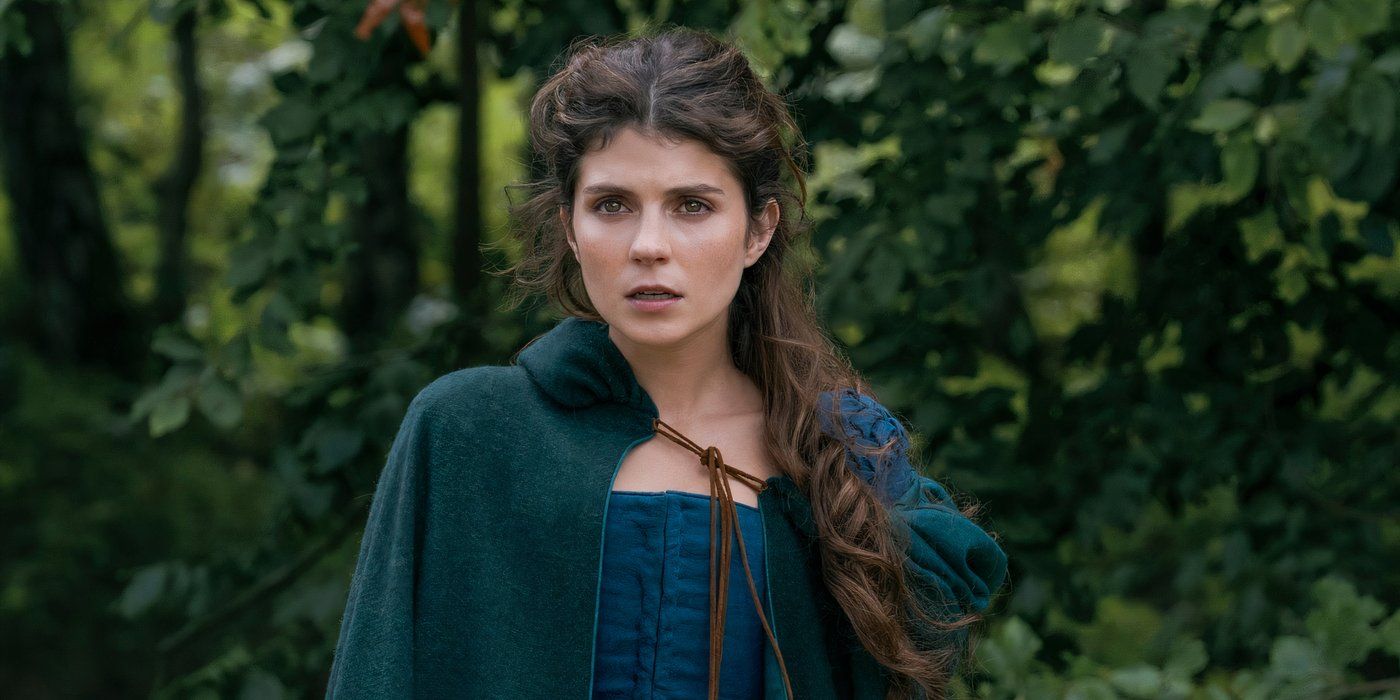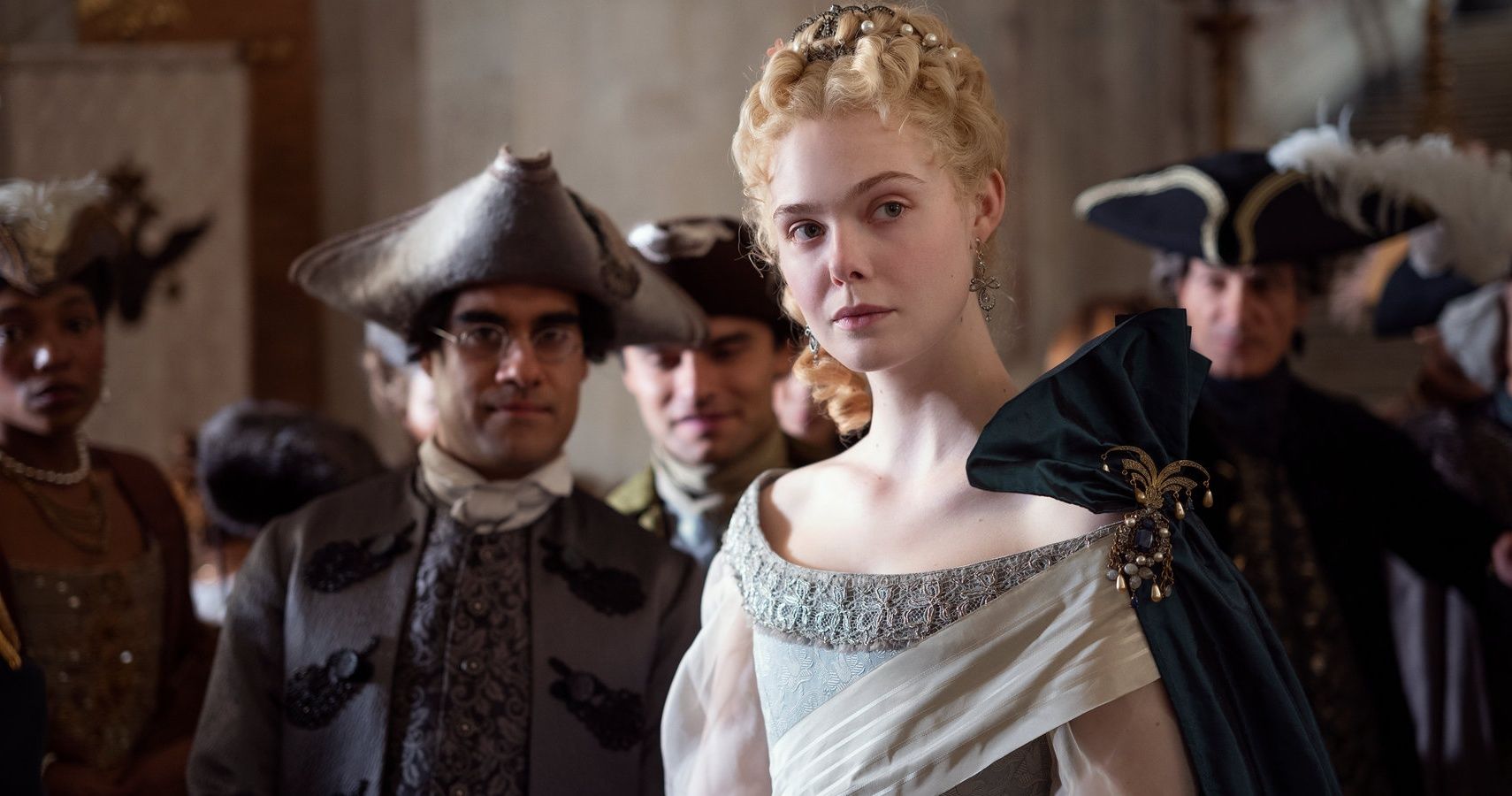Summary
- The Decameron, like other historical comedies, blends modern storytelling with 14th-century themes during the Black Plague.
- The Decameron and shows like The Great and My Lady Jane aren’t too concerned with historical accuracy, instead providing audiences with comical interpretations.
- While waiting for news on a second season of The Decameron, audiences can enjoy other period comedies exploring similar themes.
Netflix’s The Decameron is the latest historical comedy to hit the scene in a long line of similar TV shows within the subgenre. Like The Decameron, many comparable shows are set in an important moment in history but add entertaining, modern elements of storytelling. For The Decameron — based on the collection of short stories by Giovanni Boccaccio — the setting is 1348 as a fatal plague is conquering Europe.
The Black Plague in The Decameron prompts its characters to escape to a countryside villa where relationships are formed and tested. For as funny as The Decameron can be thanks to its cast of comedic actors, deeper themes of class divide and self-discovery are introduced as the series progresses. While audiences wait for news about The Decameron season 2, similar series in the subgenre of comedy help fill the void.
Related
The Decameron’s Book History & When It Was Written
Netflix’s dark comedy The Decameron’s source material dates back over 500 years and is one of the most influential works of literature of its time.
10 Harlots (2017-2019)
Rivalry Forms Between 18th-Century Brothels
Starring Samantha Morton and Lesley Manville, Harlots is a gripping period drama set in 18th-century London. As the series’ name suggests, Morton’s character, Margaret Wells, runs a brothel to support her family. With Harlots‘ focus on sex work, there are a decent number of steamy scenes throughout the series. However, many of these scenes are in the spirit of liberation, a theme brought up in The Decameron.
There is a sense of sexual liberation, namely with the married couple of Neifile and Panfilo, but freedom also appears in tandem with The Decameron’s themes of class. This is most apparent in episode one when Licisca goes on an unexpected solo trip to Villa Santa. Differences in class and status are important factors in Harlots and are woven throughout its narrative, adding depth to the characters as they navigate a limiting society. The Decameron‘s Douggie McMeekin also appears in Harlots as Charles Quigley.
9 Our Flag Means Death (2022-2023)
Adventures Of Comical Pirates
The personalities of 18th-century pirates are comically embodied in Our Flag Means Death, putting an entertaining spin on the Golden Age of Piracy. The swashbuckler comedy was canceled after two seasons, leaving many of Our Flag Means Death‘s storylines unanswered. Still, the character arcs and relationships formed in the series’ 18 episodes make it worth the watch.
Our Flag Means Death is brought to life by its ensemble cast of actors who have a knack for comedy, including notable guest stars such as Leslie Jones and Fred Armisen. Our Flag Means Death is also packed with LGBTQ+ relationships and characters, having earned much praise for its diversity and representation. The Decameron has a similar LGBTQ+ representation, but the series doesn’t go as far in the exploration of such storylines. Therefore, Our Flag Means Death provides the perfect solution to audiences’ desire for a period piece with a wider range of love.
8 Quacks (2017)
Careers Of Doctors Are Played Out For Laughter
The Victorian era was a time of progression with large steps forward in the medicinal field, and it acts as the setting of Quacks. The BBC sitcom revolves around the lives of comical, entertaining doctors. Led by Rory Kinnear as Robert Lessing, Quacks places its medical staff in absurd scenarios, leaning heavily into slapstick humor. However, many of Quacks‘ storylines are based on documented historical events and figures.
History has proven to be an effective companion for the comedy genre as the mixture of the two continues to be popular with audiences. The Decameron too falls into the genre, as there are plenty of moments where audiences are invited to laugh at the series’ characters. However, the comedy in The Decameron is much more grounded and coheres with its 14th-century setting. The amusing real-life behavior from the Victorian era, such as the use of vegetables and snake oil as the cure for severe diseases, lends itself well to Quacks and allows for over-the-top provocations of laughter.
7 The Buccaneers (2023-Present)
American Girls Are Out Of Place In London
The ensemble of characters in The Decameron and The Buccaneers have quite a bit in common. The group of characters in each show set off on an adventure away from home and discover parts of themselves they hadn’t explored before. In The Buccaneers, five women from America travel to London in hopes of finding love. However, the cultural clash between them and the high class in London causes tension and drama.
There’s an obvious connection to The Decameron‘s servants and noble characters and the themes of class difference that come as a result. Beyond that, Licisca and her undercover identity as Filomena’s servant bear some resemblance to The Buccaneers‘ Nan (Kristine Froseth) and the secret she keeps about her family’s history. The Decameron‘s soundtrack is also similar to The Buccaneers, as both series implement music from recent decades by artists such as New Monday and Japanese Breakfast.
6 Plebs (2013-2019)
Plebs Go About Life In Ancient Rome
The first few moments of The Decameron show the reality of the Black Death that sweeps through Florence. The series’ main characters have the privilege of escaping the plague, but many less fortunate individuals never stand a chance. Going further back in history than The Decameron, Plebs focuses on these lower-class individuals — only Plebs is set in ancient Rome and, thankfully, there isn’t a daunting illness taking control over the area.
Instead, Plebs looks at the day-to-day lives of its group of commoners, Stylax, Marcus, and Grumio. The three men are put in scenarios expected of a sitcom, such as coming across a large amount of money after betting on chariot races. Plebs‘ five seasons allow for engaging relationships and growth of its main characters and, just as many shows like The Decameron do, Plebs utilizes modern language and music throughout.
5 Mary & George (2024)
A Mother And Son Duo Scheme Together
One of the best romance TV shows of 2024 so far, Mary & George shares a few elements with The Decameron. Both series pull from historical events but don’t care to stick to the facts the entire way through. History — the affair between James VI and I and the 1st Duke of Buckingham, George Villiers — acts mainly as a setup for Mary & George.
Set in the 17th century, Mary & George sees its main characters, played by Julianne Moore and Nicholas Galitzine respectively, scheming to reach a higher status through artificial feelings of love. Because of their actions, the lead characters in Mary & George are unlikable, and the same can be said for The Decameron. However, each series is aware of its characters’ flaws and plays them up for laughter and drama.
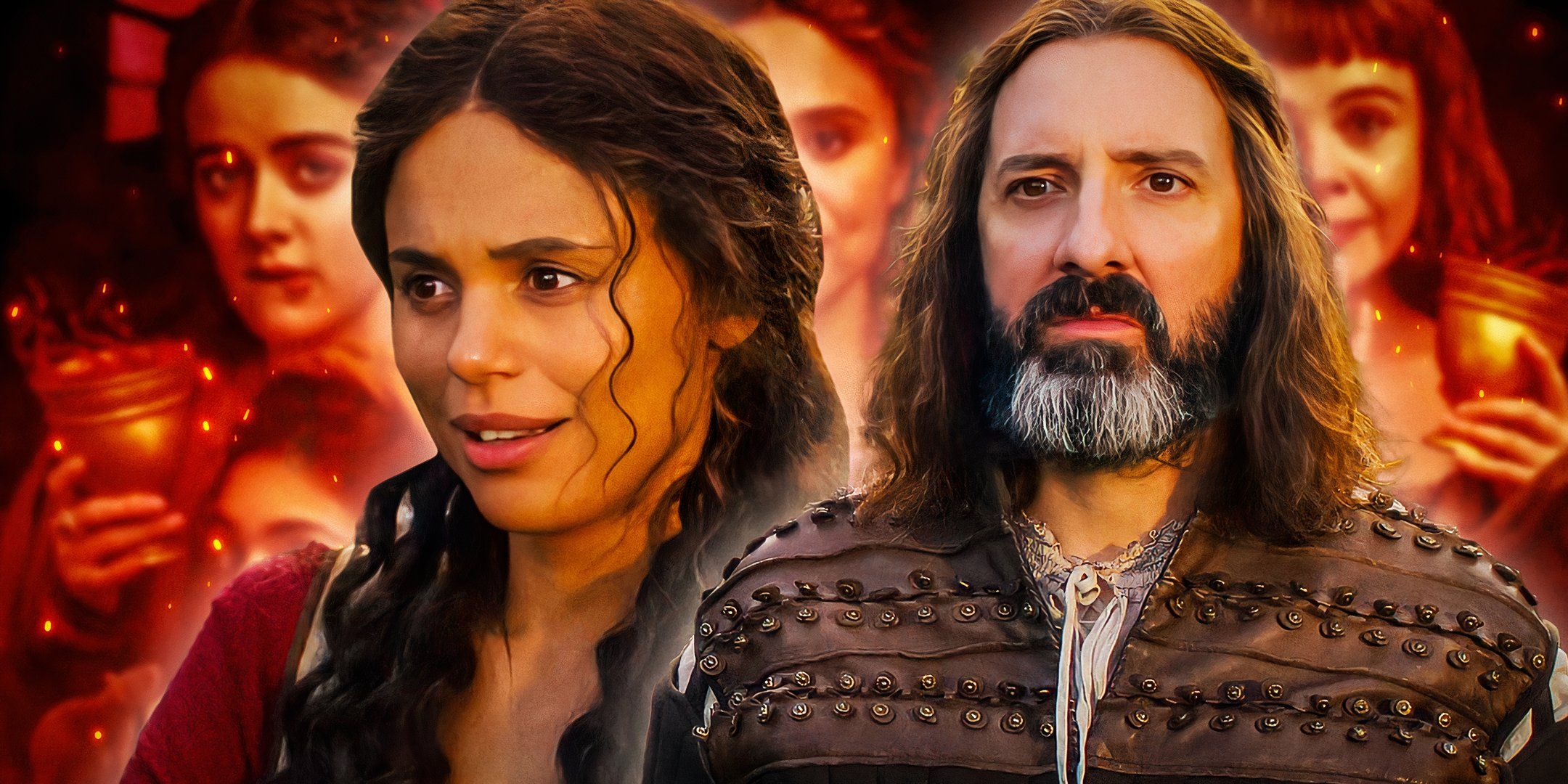
Related
Every Character In The Decameron Ranked By Likability
While all the characters in The Decameron are entertaining to watch, most of them have unlikable personalities that makes them easy to root against.
4 Dickinson (2019-2021)
The Highs And Lows Of Emily Dickinson’s Life
The absurdity of Zosia Mamet’s Pampinea in The Decameron is a comfortable place for the actress to explore. Mamet previously guest starred in Dickinson as Louisa May Alcott, the famed novelist known best for writing Little Women. Like Pampinea, Dickinson‘s version of Louisa is odd and comically charming, fitting well within the series’ approach to history. Dickinson, which follows the life of American poet Emily Dickinson, includes references to many historical events and figures, but with a present-day twist.
Music, dialogue, and accounts of history are modernized and comedic. The Decameron has a limited number of episodes to work through its character’s journeys, but Dickinson has three seasons to its name, allowing ample room for growth. The quality of Dickinson‘s character-driven narrative is apparent in not only its lead character, played by Hailee Steinfeld, but in its notable guest characters as well, including Mamet, Ayo Edebiri, and Billy Eichner.
3 Blackadder (1983-1989)
Blackadder Goes Through Memorable Periods Of British History
Before taking on the role of Mr. Bean, the character many know him for today, Rowan Atkinson was the titular role in the British sitcom Blackadder. The title character goes about life through four different time periods, all with his sidekick Baldrick by his side. Blackadder is one of the earliest examples of the comedy subgenre that pokes fun at history. Beginning in 1485, Blackadder goes through history at a quick and engaging pace.
Blackadder is mainly lighthearted, only getting a notably darker tone in the last season. Set in 1917 during the First World War, Blackadder starts to mirror the elements of dark comedy present throughout The Decameron as the former’s characters face hardships during a time of war. However, Blackadder is sure to never lose sight of its comedic tone that made the series a success in the first place.
2 My Lady Jane (2024)
A Fantastical Approach To Lady Jane Grey’s Life
Another historical series from 2024 that uses history as the foundation for its fictional story is My Lady Jane. The fantasy show takes place later than The Decameron in the 16th century and follows an altered version of Lady Jane Grey’s life. Jane is famous for her nine-day reign, but My Lady Jane poses the question of what would happen had she been declared innocent of treason and lived.
My Lady Jane‘s fantasy component of shape-shifting creatures is missing from The Decameron, but both series share entertaining mysteries and character relationships. Just as the characters in The Decameron are divided by class, those in My Lady Jane are divided by their ability to transform into animals — Ethians and Verities. Each series has the same number of episodes and awaits news of a follow-up season, as the shows are easy and absorbing viewings that have audiences waiting for more.
1 The Great (2020-2023)
A Humorous Retelling Of Catherine The Great’s Rise To Power
Aptly titled The Great, the satirical comedy details the life of Catherine the Great with strong performances by Elle Fanning, Nicholas Hoult, and more. Many period TV shows have detailed and visually pleasing sets and costumes and The Great is no different. The costuming of The Great earned the series multiple award nominations and wins for its design and detail.
However, similar to The Decameron, Hulu’s comedy series isn’t a substitute for history books. Described as mostly “anti-historical,” there are a few times when The Great does align with history, properly setting the scene of the era. An area where The Great differs from history is in its dialogue and delivery. Like The Decameron and shows similar to it, The Great‘s writing is modern. However, its relatable, witty, and quick script makes for a highly bingeable series.



